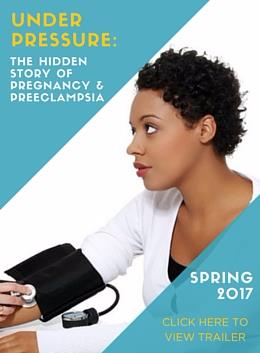Can birth control make you gain weight? Or raise cancer risk? Here’s what the science says.
September 26
The Pill holds the title for the most common method of birth control for women. Four out of five sexually active women have used the pill, according to the CDC, a statistic that has remained constant for nearly half a century.
Despite the Pill’s popularity, there are still many questions and misconceptions about there about its side effects and impact on women’s health. Here are some common myths that don’t actually hold up to science, according to ob-gyn and maternal fetal medicine specialist Kecia Gaither, MD.
- MYTH: Birth control pills make you gain weight.
REALITY: This might be the most feared side effect of taking the Pill, but it’s actually a myth. “The hormones in birth control pills could cause fluid retention, which could make you feel bloated,” says Dr. Gaither, “but it’s not permanent weight gain.” - MYTH: Birth control pills make it harder to get pregnant later.
REALITY: If you know someone who forgot to take a pill or two and found themselves pregnant later that month, you’ll quickly realize this one is a myth. (And FYI, here’s what to do if you miss a birth control pill.) The truth is, the Pill will not sterilize you; instead, it raises your hormone levels to imitate pregnancy—and the body can’t get pregnant when it thinks it’s already pregnant. All reversible birth control methods (that is, everything other than actually “getting your tubes tied”) only protect against pregnancy while you are taking them, and you’ll be able to get pregnant pretty much as soon as you quit your birth control.
- MYTH: Women over 35 shouldn’t take birth control pills.
REALITY: This myth stems from an increased risk of heart disease, stroke, and cancer in older women, so doctors were hesitant about giving women over age 35 the extra dosage of estrogen. But the fear is usually unnecessary. A study published in the Journal of Reproductive Medicine demonstrated that women ages 35-50 who took oral contraceptives were not at a higher risk of these diseases; in fact, taking the Pill might even benefit some women, such as those with a family history of endometrial or ovarian cancer. One caveat: doctors still do not recommend birth control pills for women over 35 who smoke, have high blood pressure, or have a history of heart disease. Considering 29 percent of pregnancies for women aged 35 to 39 are unplanned (and 38 percent for women over 40), believing this myth could be, well, an accident. - MYTH: Emergency contraception is the same thing as abortion.
REALITY: An abortion occurs after a fertilized egg has already implanted on the lining of the uterus, which takes five to seven days after fertilization. Emergency contraception(like the “morning-after pill”) only takes effect during that week-long window, before the egg implants. Here’s how it works: Sperm can hang out inside the uterus for up to six days, and if you ovulate (you know, release an egg) during that time, fertilization may occur. Most emergency contraceptives work by delaying the ovulation, so there’s no egg for the sperm to fertilize. In other words, it’s just another way to prevent pregnancy, not a method of ending a pregnancy that’s already happened.
- MYTH: Antibiotics make birth control pills less effective.
REALITY: The antibiotics prescribed for common issues like acne, sore throat, UTIs, or vaginal infections will not mess up your hormonal birth control (meaning the Pill, patch, or ring). Learn more about antibiotics and birth control
- MYTH: Birth control pills can cause cancer.
REALITY: Being one of the most commonly prescribed medications, birth control pills have been studied up and down for possible long-term effects. Not only have no studies found a proven risk of cancer, but researchers now say that the pill can actually reduce your risk of ovarian cancer, endometrial cancer, and uterine cancer. “That’s probably because women who take the pill ovulate fewer times than women who don’t take the pill,” says Dr. Gaither. “The more times you ovulate over your lifetime, the more hormones you’re exposed to.”
This video features Dr. Kecia Gaither, MD. Kecia Gaither, MD, an ob-gyn and maternal fetal medicine specialist, is director of perinatal services at Lincoln Medical and Mental Health Center, a member of NYC Health + Hospitals System in Bronx, New York.
Duration: 2:53. Last Updated On: Sept. 26, 2017, 7:15 p.m.






